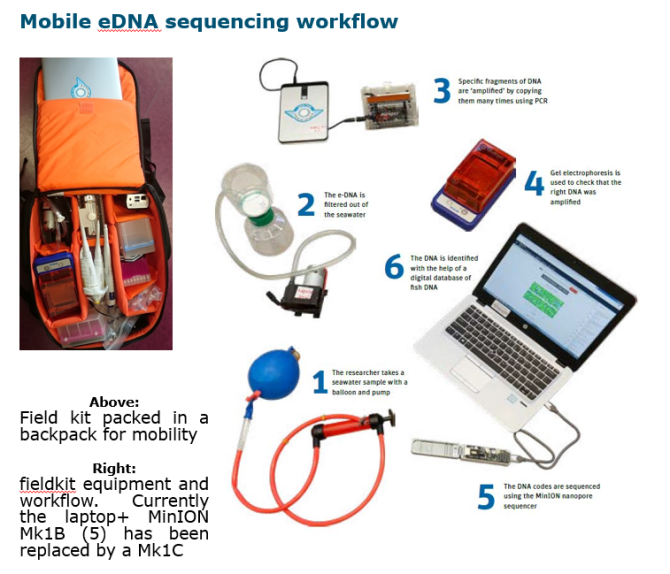
Project
GEANS: Genetic tools for Ecosystem health Assessment in the North Sea region
High marine biodiversity is an indicator of marine ecosystem health. The aim of GEANS is to facilitate the development of fast, accurate and cost-effective DNA-based assessments of biodiversity. Results will enable adequate management of human activities and protect the North Sea. One of the partners of GEANS is Wageningen University.
High marine biodiversity is an indicator of marine ecosystem health. The aim of GEANS is to facilitate the development of fast, accurate and cost-effective DNA-based assessments of biodiversity. Results will enable adequate management of human activities and protect the North Sea. One of the partners of GEANS is Wageningen University.
Wageningen University, and Dr. Reindert Nijland and Prof. Dr. Tinka Murk in particular, are responsible for the optimization and standardization of DNA-based field and laboratory protocols. The aim is to evaluate vertebrate biodiversity through nanopore eDNA sequencing ‘in the field’ at the North Sea. This enables biodiversity assessment of a diversity of reef structures in the North Sea, supporting optimal design of artificial structures such as wind farm foundations and scour protection.
Using the MinION platform allows for using various DNA fragment sizes. As eDNA rapidly degrades, using short and long DNA fragments could allow for the addition of a temporal resolution to eDNA monitoring. Nanopore sequencing allow for the monitoring biodiversity through eDNA sequencing ‘in the field’ and in the laboratory. This will supporting optimal eco-friendly design of artificial structures such as wind farms. When managed properly, these optimal designs can assist in recovery the of the North Sea ecosystem.
